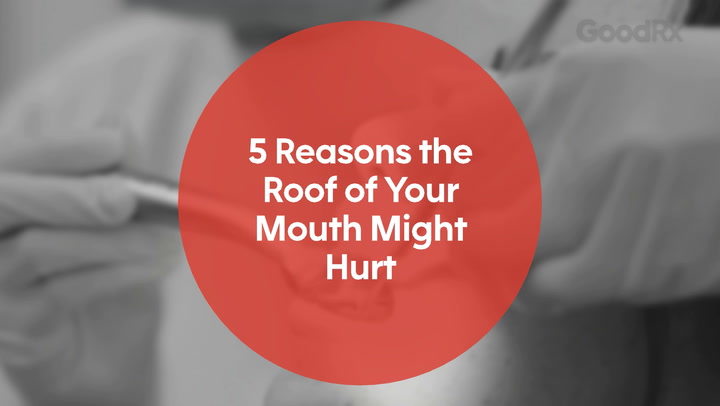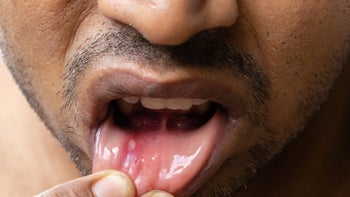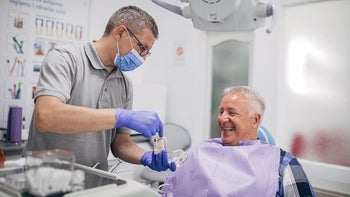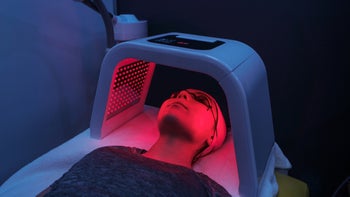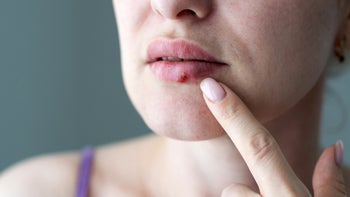
What Can Make Your Mouth Taste Like Metal? 21 Common Causes
Key takeaways:
A metallic taste is usually temporary and often not a cause for concern.
There are medications and underlying health conditions that can cause a metallic taste in your mouth.
Know what to look out for in case a metallic taste is a sign of a more serious problem.
Table of contents

The sensation of having a metallic taste in your mouth is a type of dysgeusia (pronounced dis-goo-see-ya). This is a medical term that means altered taste. There are other types of distorted tastes, like sweet, sour, or bitter.
As strange as it may seem, there are many reasons why you may develop a metallic taste in your mouth. Commonly, it’s caused by medications or supplements — and goes away on its own. But a metallic taste in your mouth can also be a symptom of an underlying medical condition — and in some cases should prompt you to see your primary care provider.
Let’s run through the most common causes of metallic taste.
Save every month on GLP-1 meds with GoodRx
Save an average of $235 on FDA-approved GLP-1s like Ozempic and Zepbound.

1. Medications
There are many medications or supplements that can cause a metallic taste in your mouth, including:
Some antibiotics and antiviral medications, such as metronidazole
Some psychiatric medications, such as lithium
Some blood pressure medications, such as captopril
Some diabetes medication, such as metformin
Some cancer medications (chemotherapy)
Some seizure medications, such as phenytoin
Steroid pills
COVID medications, like Paxlovid (more on this below)
Usually, this side effect will pass once you finish taking the medication. But if the medication is one you need to take long term, try drinking plenty of fluids and chewing sugar-free gum to lessen the bad taste in your mouth.
Sweet, sour, or bitter taste? Many medications and health conditions can leave you with a weird taste in your mouth.
How to enjoy your food when you can’t taste it: It can be hard to eat when your sense of taste is off. Explore tips and tricks for getting the most out of your meals until your taste recovers.
Bitter taste from your medications? Try these citrus fruit juices to improve the aftertaste.
2. Vitamins and supplements
Many vitamins and supplements can also cause a temporary metallic taste in your mouth. We don’t usually think about metal as being important to our health, but metals like iron, zinc, and calcium are essential for our bodies to function. Lots of vitamins and supplements contain metals like these so it makes sense that they could give your mouth a metallic taste.
3. Getting an IV
When you get an intravenous (IV) infusion, you’ll get a small amount of saline (salt water) injected to make sure the IV is working. Even though the saline is injected into your vein, lots of people report feeling a metallic taste in their mouth when this happens. This effect is so common that packages of saline often come with the following warning: “Some patients may experience a transitory taste or odor during flushing. This minor effect ceases shortly after the procedure.”
4. Blood in the mouth
Blood is red because of all the iron loaded up in its molecules. Iron turns red when it rusts (a process known as oxidation), and our blood goes through the same reaction. As anyone who’s ever bitten their lip knows, blood contains so much iron that it has a strong metallic taste. So any source of blood in your mouth — from a dental procedure to a bloody nose — can cause you to notice a metallic taste.
5. Poor oral health
Dental issues, like a tooth infection or gum disease, can also be a cause of a metallic taste. Some bacteria responsible for mouth infections can taste metallic. And, because your taste buds live in your mouth, poor oral health can impact how well your taste buds work, also contributing to a distorted sense of taste. Lastly, oral health problems can cause your mouth and gums to bleed — another reason for a metallic taste.
6. Mouth injury or surgery
There are lots of nerves throughout the head and face responsible for your sense of taste. Sometimes, these nerves get damaged, like from a mouth injury or mouth surgery. When this happens, it can alter your sense of taste, including a metallic taste distortion.
7. Colds and other infections
Research shows that taste receptors play an important role in the immune system. In addition to helping you taste your food, these receptors also help protect you from upper respiratory tract infections and sinus infections. As a result, when you get sick with a cold or sinus infection, these receptors can get damaged, altering your sense of taste. This can sometimes cause you to feel a metallic taste in your mouth.
Read more like this
Explore these related articles, suggested for readers like you.
8. COVID-19
One common and well-documented symptom of COVID-19 is an altered taste and smell.
Researchers don’t yet completely understand why this happens, but it’s likely due to inflammation of the lining of the nose and the nerve endings that control smell and taste. Some people also note a metallic taste right after getting the COVID-19 vaccine. And, oral antiviral medications that treat COVID — Paxlovid and Molnupiravir — can also cause a metallic taste as a side effect.
9. Allergies
A metallic taste in your mouth could also be a sign of a severe allergic reaction called anaphylaxis. If you develop difficulty breathing, swelling in your mouth or throat, itchy skin, along with a metallic taste, this could be a sign you need emergency medical care. Less severe allergic reactions like seasonal allergies can also cause a metallic taste in your mouth. Seasonal allergies do this by causing symptoms like a runny nose and sore throat, which can affect your sense of taste.
10. Pregnancy
Many women notice a metallic taste in their mouth during pregnancy. Scientists believe this is related to hormonal changes, and it’s usually worse in the first trimester. While it can be unpleasant, it’s often nothing to be concerned about and will go away with time.
11. Kidney disease
People with chronic kidney disease often have an impaired sense of taste. Researchers aren’t sure exactly why, but they think it might have something to do with the way kidneys regulate fluids, zinc, and other molecules in the body. This effect is so closely tied to kidney disease that some people say that the metal taste they have in their mouths goes away right after a dialysis session.
12. Indigestion
Gastroesophageal reflux disease (GERD) is a common cause of a metallic taste. With GERD, acid from the stomach goes back up into the esophagus (the tube that leads from the mouth to the stomach). Typically, this happens after meals, especially after a large meal, or a spicy one. But you can get acid reflux at any time of the day. GERD is almost always easily treated with antacid medications.
13. Diabetes
Diabetes can cause lots of effects in the body. In addition to increasing your risk for infections, heart attacks, and strokes, diabetes can also damage nerves (called neuropathy.) Neuropathy can happen anywhere in the body. So if neuropathy affects the nerves involved in taste, it’s possible that your sense of taste could be altered.
14. Cancer and cancer treatment
Both cancer and cancer treatments can cause a metallic taste. Research shows that as many as 85% of people with advanced cancer experience changes to their taste and smell. Some types of cancer, like cancers of the head and neck, are more likely to cause this than others. Chemotherapy and radiation can also cause changes to a person’s sense of taste.
15. Pine nut syndrome
Some people have a rare reaction to eating pine nuts that causes a metallic taste. This sensation, known as “pine mouth” syndrome, sticks around long after the pine nuts have been eaten and can last for up to 2 weeks. It’s not clear why some people have this reaction to pine nuts, but experts think it has something to do with the way pine nuts are stored before being eaten. The good news is that pine mouth isn’t dangerous and it does eventually pass.
16. Cerebrospinal fluid leak
Cerebrospinal fluid (CSF) is the fluid that surrounds the brain and spinal cord. It has lots of purposes including protecting the brain and clearing out waste products. Sometimes, CSF can leak from a bone deep inside the skull (the cribriform plate). When this happens, CSF can drip into the back of the mouth and can cause a salty or metallic taste. These leaks are very rare, but they can happen after a head injury, after brain surgery, or sometimes for no reason at all.
17. Neurological conditions
Many different neurological conditions have been reported to cause a metallic taste. Some examples include:
Amyotrophic lateral sclerosis (ALS, also known as Lou Gehrig’s disease)
18. Psychosis
People with psychosis often have visual or auditory hallucinations. This is when you see or hear things that other people don’t. Less commonly (about 10%), people with psychosis also report taste hallucinations. Taste hallucinations can cause people to taste many different things, including metal.
19. Sjögren’s syndrome
Sjögren’s syndrome is an autoimmune condition that affects the salivary glands. People with it commonly report dry eyes and mouth. Along with this dry mouth, people with Sjögren’s also report a metallic taste, burning, and numbness in their mouths.
20. Burning mouth syndrome
Burning mouth syndrome, also known as stomatodynia, is a condition where people feel a constant burning sensation in their mouths. Experts are not sure why some people get burning mouth syndrome, but they think it has something to do with alterations in the body’s natural steroid levels. People with burning mouth syndrome often have an altered sense of taste and can taste metal.
21. Metal ingestion
Metal toxicity is rare, but when folks accidentally ingest lead, copper, or mercury, they may report a metallic taste. In one case report, a 51-year-old woman was diagnosed with a copper overdose after her only symptom was a metallic taste in her mouth for more than 3 months. It turns out that she had accidentally swallowed a copper needle and her body was absorbing dangerous amounts of copper as a result. Her symptoms resolved once the needle was removed.
Should I worry about a metallic taste in my mouth?
Most of the time, a metallic taste in your mouth is temporary and harmless. But it can be a symptom of a more serious health condition, so it’s always worth bringing it up to your primary care provider if the metallic taste persists or it’s associated with other symptoms like allergies, pain, or signs of infection.
How do you get rid of the taste of metal in your mouth?
Often the metallic taste will get better on its own once the cause has been identified and addressed. The best treatment will depend on the cause. Occasionally, you may need imaging studies or referral to an ear, nose, and throat (ENT) specialist. Depending on the cause, there may be specific treatments or medications that can help.
In addition to figuring out and treating the underlying cause, there may be some steps you can take at home to help minimize the metallic taste. Here are some things to try:
Brush your teeth regularly.
Chew on gum.
Stay hydrated.
Avoid smoking.
Try different foods and spices.
Rinse your mouth with salt water or mouthwash.
Frequently asked questions [FAQs]
A deficiency may cause a metallic taste in your mouth, but only indirectly. A vitamin C deficiency, for example, can cause poor oral health and gum disease. Poor oral health and gum disease can then cause you to have a metallic taste in your mouth.
Heart problems themselves don’t cause a metallic taste in your mouth, but some of the medications used to treat heart problems can. For example, captopril, a medication used to treat high blood pressure, is known to cause some people to experience a metallic taste.
Blood can taste like metal in the mouth, so if your cough tastes metallic it could be because you’re coughing up blood. There are lots of reasons you could have blood in your cough, but it's best to see your medical care team about this symptom to find out what’s going on.
The bottom line
There are many reasons why you may develop a metallic taste in your mouth. Most of the time it’s not a cause for worry. Common causes are medications, supplements, or an upper respiratory infection. Usually, the taste symptoms resolve without the need for treatment.
Why trust our experts?



References
Anuradha, B. R., et al. (2015). Oral and salivary changes in patients with chronic kidney disease: A clinical and biochemical study. Journal of Indian Society of Periodontology.
Bernhoft R. A. (2012). Mercury toxicity and treatment: A review of the literature. Journal of Environmental and Public Health.
Bhandare, N. N., et al. (2014). Diabetic tongue - could it be a diagnostic criterion? Journal of Family Medicine and Primary Care.
Blochowiak, K. (2022). Smell and taste function and their disturbances in Sjögren’s syndrome. International Journal of Environmental Research and Public Health.
Choo, E., et al. (2017). The impact of pregnancy on taste function. Chemical Senses.
Delompré, T., et al. (2019). Taste perception of nutrients found in nutritional supplements: A review. Nutrients.
Fitzgerald, C., et al. (2019). Characterizing dysgeusia in hemodialysis patients. Chemical Senses.
Hutton, J., et al. (2007). Chemosensory dysfunction is a primary factor in the evolution of declining nutritional status and quality of life in patients with advanced cancer. Journal of Pain Symptom Management.
IJpma, I., et al. (2015). Metallic taste in cancer patients treated with chemotherapy. Cancer Treatment Reviews.
Imura, H., et al. (2016). Characteristic changes of saliva and taste in burning mouth syndrome patients. Journal of Oral Pathology and Medicine.
Institute for Quality and Efficiency in Health Care. (2023). Food allergies: Anaphylactic reactions (anaphylaxis). InformedHealth.org.
Jafari, A., et al. (2021). The etiologies and considerations of dysgeusia: A review of literature. Journal of Oral Biosciences.
Kongsgaard, U., et al. (2010). Experience of unpleasant sensations in the mouth after injection of saline from prefilled syringes. BMC Nursing.
Kuga, M., et al. (2009). Changes in gustatory sense during pregnancy. Acta Oto-Laryngologica.
Lee, N., et al. (2014). Taste of a pill: Organic cation transporter-3 (OCT3) mediates metformin accumulation and secretion in salivary glands. The Journal of Biological Chemistry.
Lewandowski, K. E., et al. (2009). Tactile, olfactory, and gustatory hallucinations in psychotic disorders: A descriptive study. Annals of the Academy of Medicine.
Munk, M. (2010). “Pine mouth” syndrome: Cacogeusia following ingestion of pine nuts (genus: pinus). An emerging problem? Journal of Medical Toxicology.
National Institutes of Health. (2023). Taste disorders.
Schiffman, S. (2018). Influence of medications on taste and smell. World Journal of Otorhinolaryngology - Head and Neck Surgery.
Srinivasan, M. (2021). Taste dysfunction and long COVID-19. Frontiers in Cellular and Infection Microbiology.
UCSB ScienceLine. (2010). Why is blood red?
Wolf, A., et al. (2018). Gustatory function in patients with chronic rhinosinusitis. Annals of Otology, Rhinology & Laryngology.
Will, U., et al. (2009). “Metallic taste”: search for the needle in a haystack (exemplary diagnostic measures and successful minimal invasive endoscopic treatment of a needle-like copper-containing foreign body in the gastric wall). BMJ Case Reports.






